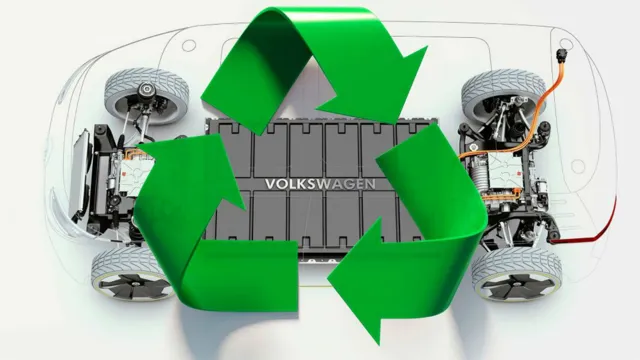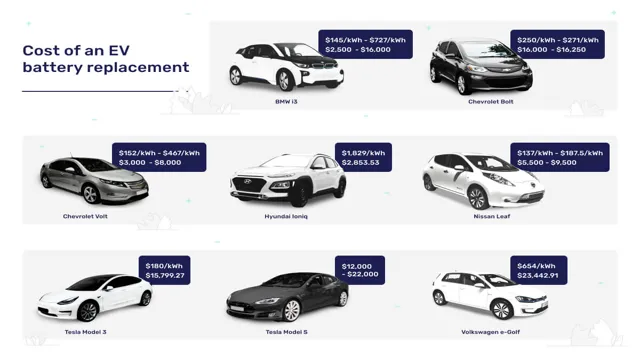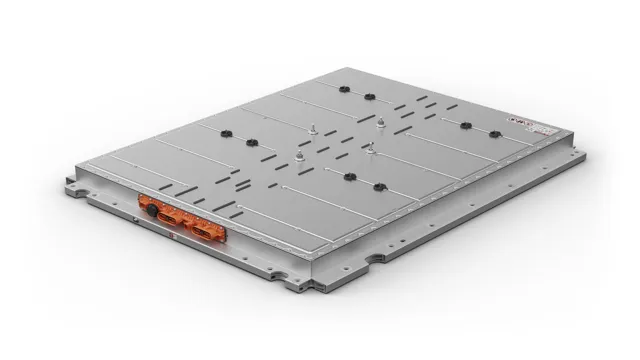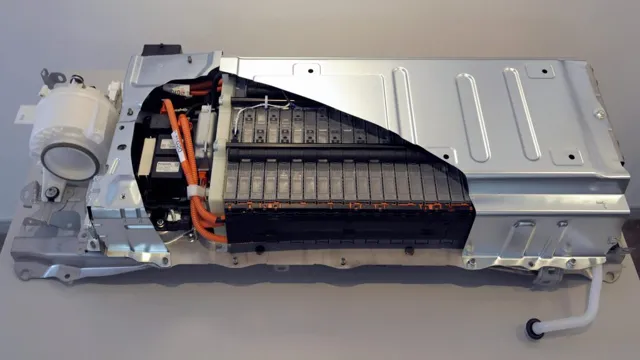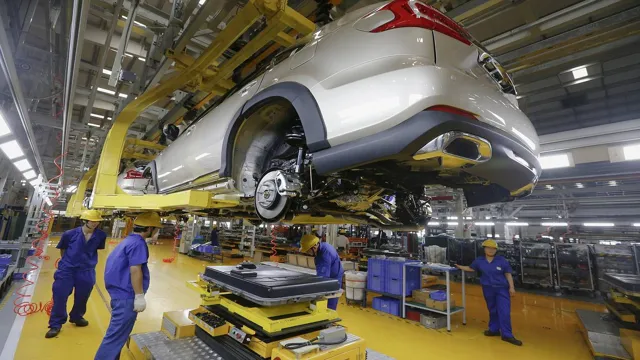Revolutionizing the Future: The Importance of Electric Car Battery Life Recycling
As the world makes a significant shift towards renewable energy, electric cars are on the rise, promising a more sustainable future. However, these eco-friendly cars come with a big concern – their batteries. What happens to the batteries once they reach the end of their life? The answer lies in electric car battery recycling.
Wondering what electric car battery recycling is all about? Well, it’s a process of extracting the valuable metals and materials from the batteries and repurposing them. From lithium, cobalt, and nickel to aluminum and copper, these metals can be extracted and used to create new batteries. Why is it important to recycle these batteries? It’s because these batteries contain toxic chemicals that can harm the environment if not disposed of properly.
Recycling not only ensures that the chemicals are contained but also helps save natural resources. But, what are the challenges that come with recycling electric car batteries? For starters, there are not enough recycling facilities, and the ones we have are not equipped to handle the volume of batteries that need to be recycled. Besides, the recycling process is still in the early stages and expensive.
Overall, electric car battery recycling is a promising solution to the problem of waste from electric vehicles. It can prevent environmental damage, ensure the efficient use of natural resources, and reduce the carbon footprint of these eco-friendly cars. By recycling these batteries, we can make electric cars a truly sustainable mode of transportation.
The Problem
The issue of electric car battery life recycling has become increasingly important in recent years. Electric vehicle (EV) batteries are essential components for powering these cars but they have a limited lifespan. Once the batteries die, they can pose a significant environmental challenge.
Discarded batteries from EVs can harm the environment and release toxic chemicals and heavy metals. Therefore, developing technologies to recycle these batteries is critical. Advanced recycling methods can recover materials such as lithium, cobalt, and nickel from the batteries, reducing the environmental impact of EVs.
By recycling and reusing these materials, we can promote a circular economy and reduce our dependency on rare resources that are required to manufacture these batteries. As electric vehicle use continues to grow, the need for sustainable battery recycling will become increasingly urgent.
Short Battery Life Expectancy
A common problem that many smartphone users face is the short battery life expectancy of their devices. It can be incredibly frustrating to have a phone that you constantly have to charge multiple times a day. The reason behind this issue is that smartphones consume a lot of energy due to their software and hardware features.
From the bright high-resolution screen to the powerful processor, every component contributes to the power drain. Additionally, as the battery ages, its capacity decreases, and it’s less likely to hold a charge for a longer time. Therefore, it’s essential to focus on ways to improve the battery life and extend its lifespan.
This can be achieved through various methods, including turning off unnecessary features, reducing the screen brightness, and closing unused apps. By following a few simple steps, you can significantly increase your device’s battery life and make it last throughout the day.
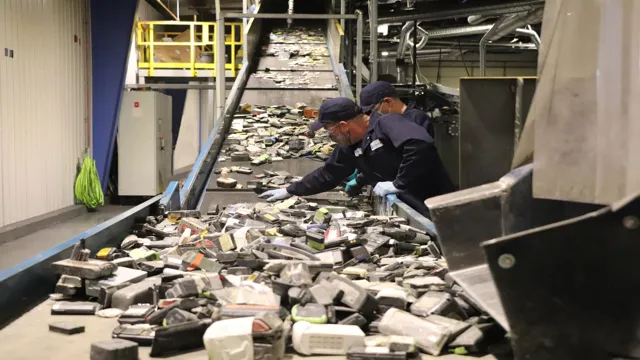
Environmental Effects of Disposing Batteries
Batteries are becoming an increasingly common part of our daily lives, powering everything from our phones to our cars. However, disposing of batteries is an issue that many people don’t consider. When batteries are thrown away, they can release harmful chemicals into the environment, including cadmium, lead, and mercury.
These chemicals can contaminate soil and water sources, harming plants and wildlife, and creating health risks for humans. Additionally, batteries that end up in landfills can take hundreds of years to decompose, further contributing to environmental damage. It’s important to properly dispose of batteries by recycling them at designated facilities, or by using rechargeable batteries whenever possible.
By doing so, we can help reduce our environmental impact and protect the planet for future generations.
The Solution
When it comes to electric cars, battery life is crucial to the vehicle’s overall performance. However, electric car batteries eventually reach the end of their life span and need to be replaced. The good news is that these batteries can also be recycled, which is an excellent solution to reduce waste and minimize the environmental impact.
Recycling electric car batteries involves taking them apart and retrieving the valuable metals and materials. These materials can then be repurposed and used to create new batteries, decreasing the need for new materials and reducing the cost of production. This process not only benefits the environment but also contributes to a more sustainable future.
With the use of electric cars on the rise, recycling their batteries is an essential step towards creating a greener world.
Recycling Process
Recycling is an essential process that helps us reduce waste and protect our environment. The solution to the problem of waste accumulation is in recycling, which involves converting used materials into new products. The recycling process starts by collecting recyclable materials such as paper, plastics, metals, and glass.
The collected materials are then sorted, cleaned, and processed to be transformed into new products. The purpose of recycling is to conserve natural resources, reduce energy consumption, and decrease pollution. When we recycle, we help in mitigating the negative impact that waste has on our environment.
It’s crucial that we all participate in recycling to make a change in our world. By doing so, we preserve natural resources and support a sustainable future. So, let’s make recycling a habit in our daily lives, and together we can contribute to making our planet a better place to live in.
Benefits of Recycling
Recycling is the solution we need to reduce our carbon footprint and protect our environment. Not only does recycling prevent waste from being landfilled or incinerated, but it also conserves natural resources, such as trees, oil, and water. By recycling, we create new products from used materials, which saves energy and reduces greenhouse gas emissions.
This benefits not only the environment but also our economy as it creates jobs in the recycling industry. These benefits of recycling are endless, from reducing the need for raw materials to lowering pollution levels and conserving energy. Therefore, embracing recycling is essential for a sustainable future, and we all need to do our part by recycling every chance we get.
Global Recycling Initiatives
Recycling Global recycling initiatives have been implemented to reduce waste and preserve natural resources. With the increasing population and consumption levels, the amount of waste generated every day has reached an alarming level. Recycling is one of the most effective ways to reduce this waste and promote sustainability.
Governments and organizations worldwide have taken steps to make recycling accessible and encourage people to recycle. Many countries have established recycling programs, which provide incentives and infrastructure for recycling. Recycling helps reduce the need for raw materials, energy consumption, and greenhouse gas emissions.
Additionally, it creates job opportunities and supports the economy. The more we recycle, the less we need to depend on non-renewable resources, ultimately benefiting the planet. By participating in global recycling initiatives, we can positively impact the environment and our communities for the better.
The Future of Electric Car Battery Recycling
The future of electric car battery life recycling looks promising. As the demand for electric cars increases, so does the need for recycling the batteries responsibly. The materials used in these batteries, such as lithium and cobalt, are finite resources.
Recycling these components and reusing them in new batteries has many benefits. Firstly, it reduces the need for mining new materials, which in turn reduces the environmental impact. Secondly, it reduces the cost of producing new batteries and makes electric cars more affordable for consumers.
Lastly, it creates a growing market for recycling companies to specialize in battery recycling. As the technology advances, recycling companies are finding new and innovative ways to extract materials from batteries, making the industry more efficient and sustainable. Overall, the future of electric car battery recycling looks bright and is only going to become more important as the popularity of electric cars continues to grow.
Emerging Technologies
As electric cars become more popular and demand for clean energy increases, the recycling of electric car batteries is becoming increasingly important. The current process for recycling these batteries involves stripping the batteries down to individual materials, such as aluminum and cobalt. However, emerging technologies are being developed that will make the process much more efficient.
For example, new methods are being explored that can break down the battery components into their basic components without needing to separate the materials manually. This could help reduce the amount of energy used in the recycling process and make it more cost-effective. As demand for electric vehicles continues to grow, these emerging technologies will play an important role in ensuring that we can continue to rely on clean energy sources.
Industry Growth Predictions
Electric car battery recycling is a growing industry with a promising future. As more and more electric vehicles hit the roads, the need to recycle their batteries becomes increasingly important. The industry is predicted to grow at a significant rate due to the increase in awareness of the importance of sustainable practices and an environmentally-friendly approach.
The recycling process involves recovering valuable materials such as cobalt, lithium, and nickel from the batteries, which can then be used to produce new batteries or other products. This not only reduces the environmental impact of discarded batteries but also creates a sustainable supply chain for these valuable materials. With the predicted exponential growth of the electric vehicle market in the coming years, the future of electric car battery recycling looks bright.
Conclusion
In the world of electric cars, the battery life recycling is the ultimate green technology superhero. Recycling not only reduces waste and conserves natural resources, but it also supports the continued growth of the electric car industry. So, the next time you switch on your electric car, know that you’re not just saving money on gas, you’re also saving the planet one battery at a time!”
FAQs
What is electric car battery life?
The battery life of an electric car refers to how long the battery can last before it needs to be recharged or replaced.
How long do electric car batteries last?
The lifespan of an electric car battery varies depending on factors such as usage, temperature, and maintenance. Typically, electric car batteries can last anywhere from 8 to 10 years.
Can electric car batteries be recycled?
Yes, electric car batteries can be recycled. Recycling the batteries is important as it helps to conserve natural resources and reduce the environmental impact of the batteries.
What happens to electric car batteries when they can no longer be used?
When electric car batteries reach the end of their life, they can either be recycled or repurposed for energy storage. In some cases, the materials in the batteries can also be used to create new batteries or other products.
